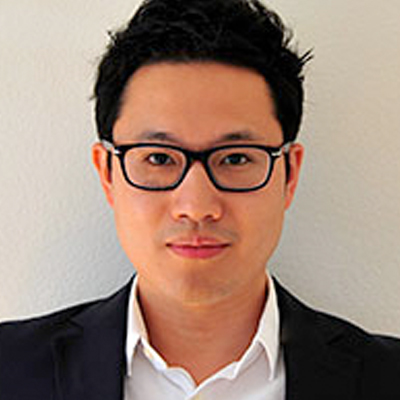Large datasets glean breakthroughs in neurodegenerative and autoimmune disease
Genetics and the environment both play important roles in disease pathology. Dr. Jimmie Ye, of the University of California, San Francisco, is interested in mapping how our cells respond under genetic and environmental perturbations at the level of molecular phenotypes. Mapping the cellular circuitry underlying genome function is fundamental for understanding human variation and complex diseases, specifically autoimmune disorders and neurodegenerative disorders. Identifying genetic and environmental perturbations that disrupt the circuitry in disease may have implications for both rational therapeutic design and potentially public policy.
To study these interactions, Dr. Ye couples high-throughput sequencing approaches to “read” genome function across large patient cohorts and genome-editing techniques to “write” the genome at precise locations. Through the development of experimental approaches that enable the large-scale collection of functional genomic data under environmental challenges and computational approaches that translate the data into novel biological insights, he and his team are making strong connections between fundamental research and practical applications. His approaches have revealed how the healthy human immune response circuitry is wired to mount resistance to foreign pathogens while maintaining tolerance to self antigens. Increasingly, his lab is moving towards applied work to study the importance of immune response in diseases ranging from autoimmunity to neurodegenerative conditions such as Parkinson’s.
Current research includes:
-
Immune Variation: Dr. Ye and his team took hundreds of healthy patients and isolated primary immune cells which they then challenged with various pathogens including viruses and bacteria. The response of the cells was then profiled using DNA and RNA sequencing. With knowledge about the genetic composition of each individual, Dr. Ye was able to identify how an individual's cells may respond differently depending on the individual’s genetic makeup.
-
Computational Biology: Dr. Ye is now developing and applying novel computational biology methods to make sense of the immune system's role in neurodegenerative and autoimmune disorders. Specifically, he is modeling how genes in the genome are “wired” in a healthy immune system and how the circuit can be disrupted in patients with disease.
-
Technology Development: Dr. Ye and his team are at the forefront of developing and implementing new experimental and computational technologies to profile the genome, model the data and disseminate the results. In this way, Dr. Ye is able to bring thousands of people into his studies as participants. For instance, in the future, he envisions mobile platforms that may allow researchers to collect real-time molecular readouts to better model how genes and the environment interact to create diverse individualized outcomes.
Bio
Dr. Ye has always had an innate fascination with understanding with how the world works. After graduating with a double major in bioengineering and computer science, Dr. Ye was quickly employed by Apple. However, after only six months, he resigned with a desire to gain a better understanding of how complex biological systems worked. He then returned to school where he earned his Ph.D. in bioinformatics and systems biology and has since worked to unravel the interaction between genes and environment in determining human variation.
Aside from his academic interest in bioinformatics, Dr. Ye is also motivated personally by an interest in elucidating the way in which the immune system goes awry and leads to disease. After the passing of his grandmother due to Alzheimer’s disease, he felt the personal way in which his research could make an impact on individuals and their families.
Given his engineering background, Dr. Ye’s approach in academics has been to try to reveal the guiding principles of biological systems by designing large scale experiments, collecting high quality data, and using computational methods to detect causal relationships between biological entities, for example individual genes. Dr. Ye hopes to use these fundamental discoveries in practical applications that can improve health and save lives.
In his free time, aside from research, Dr. Ye’s family is a priority. Outside of that, he feels lucky to enjoy his work and the students he works alongside; playing with science is enough to get him out of bed each morning.
Website: yelab.ucsf.edu


